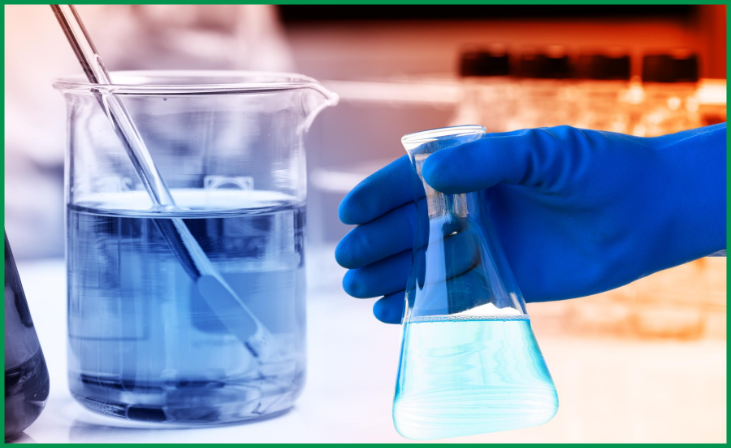In our comprehensive exploration of distilled water, we delve into its multifaceted nature, examining practical applications alongside nuanced safety considerations and potential drawbacks. Beyond mere consumption, distilled water finds utility in medical procedures requiring sterility, such as surgeries and dialysis. Through scrutinizing its production process, we highlight the meticulous steps of distillation, ensuring purity. Amidst discourse on its safety, proponents praise its purity, while skeptics raise concerns about mineral deficiencies. This dichotomy underscores the need for informed decision-making in incorporating distilled water into daily routines. Furthermore, we analyze its comparative advantages and disadvantages against tap water and purified water, considering factors like purity, taste, and environmental impact. Ultimately, our exploration provides a comprehensive guide for readers, addressing queries on safety, benefits, and applications, empowering informed choices tailored to individual preferences and requirements.
What is Distilled Water?
Distilled water is a type of purified water that has undergone a specific process to remove impurities and contaminants. Unlike tap water, which may contain minerals, chemicals, and other substances, distilled water is created through a process of distillation, which involves boiling water and then condensing the steam back into liquid form.
How is Distilled Water Produced?

The process of distillation involves heating water to create steam, which is then collected and cooled to form distilled water. This method effectively removes impurities, leaving behind a pure form of water that is free from contaminants.
Is Distilled Water Safe to Drink?
Benefits of Drinking Distilled Water
One of the main benefits of drinking distilled water is its purity. Because it has been stripped of impurities and contaminants, distilled water is considered one of the cleanest forms of water available. Additionally, some people believe that drinking distilled water can help flush toxins from the body and promote overall health.
Potential Side Effects of Drinking Distilled Water
While distilled water is generally safe to drink, there are some potential side effects to consider. Because it lacks minerals and other essential nutrients found in tap water, some people worry that drinking distilled water may lead to mineral deficiencies over time. Additionally, some research suggests that consuming large amounts of distilled water may disrupt the body’s electrolyte balance.
Uses of Distilled Water

Distilled water has a variety of uses beyond drinking. It is often used in medical settings for procedures that require sterile conditions, such as surgeries and dialysis. Additionally, distilled water is commonly used in household applications such as steam irons, humidifiers, and aquariums.
Distilled Water vs. Tap Water
When comparing distilled water to tap water, it’s important to consider the differences in purity and potential contaminants. While tap water may contain minerals, chemicals, and other impurities, distilled water is purified through a process that removes these substances, resulting in a cleaner, more neutral taste.
Distilled Water vs. Purified Water
While distilled water is a type of purified water, there are other methods of purification that may be used to achieve similar results. These methods include reverse osmosis, carbon filtration, and UV treatment. Each method has its own advantages and limitations, so it’s important to consider your specific needs when choosing a type of purified water.
Distilled Water in Medical Settings
In medical settings, distilled water is often used for procedures that require sterile conditions, such as surgeries, wound care, and dialysis. Its purity makes it an ideal choice for these applications, as it helps reduce the risk of infection and contamination.
Distilled Water in Household Applications
In addition to medical settings, distilled water is commonly used in a variety of household applications. It is often recommended for use in steam irons and humidifiers, as it helps prevent mineral buildup and extends the life of these devices. Distilled water is also used in aquariums to provide a clean, safe environment for fish and other aquatic life.
Distilled Water in Beauty and Skincare

Distilled water is a common ingredient in beauty and skincare products, where its purity makes it ideal for use on the skin. It is often used as a base for toners, facial mists, and other skincare formulations, as it helps deliver active ingredients more effectively without introducing additional impurities.
Distilled Water for Appliances
Using distilled water in household appliances can help prevent mineral buildup and prolong their lifespan. Appliances such as coffee makers, steam irons, and humidifiers are less likely to develop scale and other deposits when filled with distilled water, resulting in better performance and efficiency.
Is Distilled Water Environmentally Friendly?
While distilled water offers benefits in terms of purity and cleanliness, some environmentalists argue that the process of distillation requires a significant amount of energy, making it less environmentally friendly than other methods of water purification. Additionally, the plastic bottles often used to package and transport distilled water contribute to plastic waste pollution.
Buying Distilled Water vs. Making Your Own
When it comes to obtaining distilled water, consumers have the option of purchasing pre-packaged bottles or making their own using a home distillation kit. While buying distilled water is convenient, making your own allows you to control the quality of the water and reduce plastic waste.
Conclusion: Can You Drink Distilled Water?
In conclusion, distilled water is a purified form of water that has undergone a process to remove impurities and contaminants. While it is generally safe to drink and has a variety of uses in medical, household, and beauty applications, it’s important to consider the potential side effects and environmental impact associated with its production and use.
FAQ’s
Is distilled water safe for everyday drinking?
- While distilled water is generally safe to drink, it may not provide the same level of hydration and essential minerals as other types of water.
Can drinking distilled water lead to mineral deficiencies?
- Some experts suggest that consuming large amounts of distilled water over time may lead to mineral deficiencies, although more research is needed to confirm this.
What are the benefits of using distilled water in household appliances?
- Using distilled water in appliances such as steam irons and humidifiers can help prevent mineral buildup and prolong their lifespan.
How does distilled water compare to other types of purified water?
- While distilled water is one type of purified water, there are other methods of purification such as reverse osmosis and carbon filtration. Each method has its own advantages and limitations.







Leave a Reply